 Your new post is loading...
 Your new post is loading...
University 101: Study Strategize Succeed helps you to create a foundation for post-secondary studies by learning how to learn. By taking the time to read this book and work through the exercises included, you are investing in the skills that will support you in all of your classes and future learning. Successful students share a set of skills and habits in common. The good news is that these skills are not a secret; anyone can learn the skills that support successful learning. By taking some time to learn proven study strategies, you will be able to reach your learning goals, and avoid the pitfalls that can take you off-track.
Via Elizabeth E Charles, Jim Lerman
From Blade Runner to I, Robot, the big screens of Hollywood have predicted the rise of the machine. Automated intelligences will wait our tables and drive our cabs. They will serve us by performing menial tasks. But fact is now surpassing fiction. Automation has moved beyond the factory assembly line as computers are diagnosing illnesses, providing legal counsel, and make financial and political decisions. And if artificial intelligence really is faster, smarter and more reliable, what are we left with?
The answer is precisely that element which makes us less efficient and slower. Our humanity. But rather than being seen as a weakness, this is actually our strongest suit. It’s one we need to empower, because studies show that as the world becomes increasingly automated, computerised and digitalised, we are losing the very skills that define us as human. Just when we need them the most.
Our empathy is something that computers will always struggle to emulate. We need to celebrate what makes us different from even the smartest of the machines. While the future belongs to those who are able to navigate this increasingly digitalised world of ours, the choicest spoils will fall to those who can combine technological fluency with emotional intelligence. Learn more / En savoir plus / Mehr erfahren: https://www.scoop.it/t/21st-century-learning-and-teaching/?&tag=Empathy https://www.scoop.it/t/21st-century-learning-and-teaching/?&tag=Emotional+intelligence
Via Gust MEES, Jim Lerman
Blockchain is often touted as a world-changing technology and in many ways, it is. However, it isn’t necessarily the cure-all panacea for the world’s problems that many evangelists would have you believe.
Here’s a breakdown of some of the issues with blockchain that anyone thinking of using it should understand. Starting with perhaps the biggest…
Blockchain has an environmental cost
At least, the way it is being used today, it does. Blockchain relies on encryption to provide its security as well as establish consensus over a distributed network. This essentially means that, in order to “prove” that a user has permission to write to the chain, complex algorithms must be run, which in turn require large amounts of computing power. Of course, this comes at a cost. Taking the most widely known and used blockchain as an example – Bitcoin – last year it was claimed that the computing power required to keep the network running consumes as much energy as was used by 159 of the world’s nations.
Yes, Bitcoin’s blockchain is a hugely valuable network – with a current market capacity at the time of writing of over $170 billion – so sophisticated and computationally intense security is essential. Smaller scale blockchains – such as those that an organization may deploy internally to securely monitor and record business activity – would consume a fraction of that. Nevertheless, it’s an important consideration and the environmental implications as well as the energy costs can’t be ignored.
Lack of regulation creates a risky environment
Read more in the article... Learn more / En savoir plus / Mehr erfahren: https://www.scoop.it/t/21st-century-learning-and-teaching/?&tag=blockchain
Via Gust MEES
What would you say are a few of the biggest myths about growth mindset?
OK, myth No.1 is the myth that it’s all about effort, and that you instil it by praising effort. Effort is one factor that leads to learning. So the ultimate value is growth, progress, learning. And effort is one thing that leads there but there are many other things – strategies, using resources, getting advice, guidance and mentorship, and when people leave that out and just praise effort, it’s not transmitting a growth mindset. Adults have nagged children for centuries to try harder. That’s not a growth mindset, it’s an adult nagging a child to try harder!
Also, we find that when teachers think it’s just about effort and praising effort they may praise effort that isn’t even there, or that’s not effective. So if a child tries hard at something and you say ‘great job, you tried hard’, but they didn’t make progress, they didn’t advance, you’re actually conveying a fixed mindset because you’re saying ‘great effort, I didn’t really expect you to do that, and I don’t expect you to do that, so I’m trying to make you feel good about not doing it’. So we need people to understand that it’s appreciating a variety of process variables that lead to learning.
The second myth is that you can teach students a lesson on growth mindset and put a poster up in the front of the room, and that’s that, that they will have a growth mindset from then on. And we know if the teacher doesn’t then embody a growth mindset, if teachers don’t embody growth mindsets in their teaching practices, in the way that they give feedback when the child is stuck, and the way they present a new unit, in the way that they give opportunities for revision and growth of understanding – if they don’t embody that growth mindset, they are not teaching it. And in fact, if their behaviour contradicts the poster at the front of the room, then maybe they’re doing a disservice. Learn more / En savoir plus / Mehr erfahren: http://www.scoop.it/t/21st-century-learning-and-teaching/?&tag=carol+dweck http://www.scoop.it/t/21st-century-learning-and-teaching/?&tag=Growth+Mindset
Via Gust MEES, Jim Lerman
A new study lends credence to what you’ve probably always suspected: social media is having a pretty negative effect on teenagers — Instagram and Snapchat being the worst culprits. The study, published today and called “Status of Mind,” was conducted by researchers for the Royal Society for Public Health in the UK. The researchers surveyed 1,479 British youths ages 14-24, asking them how they felt the different social media networks effected their mental health. They took in several factors such as body image, sleep deprivation, bullying, and self-identity. The results suggest the two worst social media networks for kids are Instagram and Snapchat, as they had terrible scores for body image, bullying, and anxiety. Twitter and Facebook weren’t much better, though. YouTube was the only one that apparently inspired more positive feelings than negative ones. Learn more / En savoir plus / Mehr erfahren: http://www.scoop.it/t/social-media-and-its-influence
Via Gust MEES, Jim Lerman
Empowerment of people through Media and Information Literacy (MIL) is an important prerequisite for fostering equitable access to information and knowledge and promoting free, independent and pluralistic media and information systems. Media and Information Literacy recognizes the primary role of information and media in our everyday lives. It lies at the core of freedom of expression and information - since it empowers citizens to understand the functions of media and other information providers, to critically evaluate their content, and to make informed decisions as users and producer of information and media content. Learn more / En savoir plus / Mehr erfahren: http://www.unesco.org/new/en/communication-and-information/media-development/media-literacy/mil-as-composite-concept/
Via Gust MEES, Jim Lerman
Teacher professional learning is of increasing interest as one way to support the increasingly complex skills students need to learn in preparation for further education and work in the 21st century. Sophisticated forms of teaching are needed to develop student competencies such as deep mastery of challenging content, critical thinking, complex problem-solving, effective communication and collaboration, and self-direction. In turn, effective professional development (PD) is needed to help teachers learn and refine the pedagogies required to teach these skills. However, research has shown that many PD initiatives appear ineffective in supporting changes in teacher practices and student learning. Accordingly, we set out to discover the features of effective PD. This paper reviews 35 methodologically rigorous studies that have demonstrated a positive link between teacher professional development, teaching practices, and student outcomes. We identify the features of these approaches and offer rich descriptions of these models to inform those seeking to understand the nature of the initiatives. Learn more / En savoir plus / Mehr erfahren: https://gustmees.wordpress.com/?s=coaching https://gustmees.wordpress.com/?s=professional+development
Via Gust MEES, Jim Lerman
Exponential technologies have a tendency to move from a deceptively slow pace of development to a disruptively fast pace. We often disregard or don’t notice technologies in the deceptive growth phase, until they begin changing the way we live and do business. Driven by information technologies, products and services become digitized, dematerialized, demonetized and/or democratized and enter a phase of exponential growth. Nicole Wilson, who was Singularity University’s vice president of faculty and curriculum until last year, believes education technology is currently in a phase of deceptive growth, and we are seeing the beginning of how exponential technologies are impacting 1) what we need to learn, 2) how we view schooling and society and 3) how we will teach and learn in the future. [Gust MEES] Simply put, as WE (#Schools) DON'T know WHAT THAT world would be, WE SHOULD prepare the #students #LEARNers for <===> #LEARNing2LEARN to become #LifeLongLEARNing persons! Please check my #blog post <===> https://gustmees.wordpress.com/.../teaching-was.../ <===> #ModernEDU #Coaching
Via Gust MEES
For years, Finland has been the by-word for a successful education system, perched at the top of international league tables for literacy and numeracy. . Pasi Silander, the city’s development manager, explained: “What we need now is a different kind of education to prepare people for working life. . “Young people use quite advanced computers. In the past the banks had lots of bank clerks totting up figures but now that has totally changed. . “We therefore have to make the changes in education that are necessary for industry and modern society.” . Subject-specific lessons – an hour of history in the morning, an hour of geography in the afternoon – are already being phased out for 16-year-olds in the city’s upper schools. They are being replaced by what the Finns call “phenomenon” teaching – or teaching by topic. For instance, a teenager studying a vocational course might take “cafeteria services” lessons, which would include elements of maths, languages (to help serve foreign customers), writing skills and communication skills. . More academic pupils would be taught cross-subject topics such as the European Union - which would merge elements of economics, history (of the countries involved), languages and geography. .
Via Gust MEES, John Rudkin, Shaona Williams
“Skills young people should be learning to be prepared for a career in 2020 include:
The ability to concentrate, to focus deeply.
The ability to distinguish between the “noise” and the message in the ever-growing sea of information. The ability to do public problem solving through cooperative work. The ability to search effectively for information and to be able to discern the quality and veracity of the information one finds and then communicate these findings well. Synthesizing skills (being able to bring together details from many sources). The capability to be futures-minded through formal education in the practices of horizon-scanning, trends analysis and strategic foresight.” Learn more / En savoir plus / Mehr erfahren: https://gustmees.wordpress.com/2015/05/26/what-are-the-skills-needed-from-students-in-the-future/
Via Gust MEES, Jim Lerman
Perhaps the most important reason for developing metacognition is that it can improve the application of knowledge, skills, and character qualities in realms beyond the immediate context in which they were learned. This can result in the transfer of competencies across disciplines—important for students preparing for real-life situations where clear-cut divisions of disciplines fall away and one must select competencies from the entire gamut of their experience to effectively apply them to the challenges at hand. Even within academic settings, it is valuable—and often necessary—to apply principles and methods across disciplinary lines. Learn more / En savoir plus / Mehr erfahren: http://www.scoop.it/t/21st-century-learning-and-teaching/?tag=Four-Dimensional+Education%3A+The+Competencies+Learn
Via Gust MEES, Jim Lerman
|
The classroom of the future, according to the world’s best teachers
By Global Teacher Prize | March 2nd 2018
In many parts of the world, today’s classrooms are almost unrecognisable compared to those of a decade ago.
Technology is changing the way students learn and teachers teach. From interactive white boards replacing chalk boards to tablets replacing desktop computers, schools are becoming increasingly digital.
Looking ahead to 2030, greater internet connectivity and smarter technologies promise to radically reshape the classroom of the future.
We asked the Global Teacher Prize 2018 Finalists to share their views on how they feel the classroom will change in the coming decade, and what this means for the role of the teacher.
What do you think will be the biggest difference between the classroom of 2030 and the classroom of today?
Many of our Finalists predict that the trend of young people effectively teaching themselves will continue. Learn more / En savoir plus / Mehr erfahren: https://www.scoop.it/t/21st-century-learning-and-teaching/
Via Gust MEES, Jim Lerman
Education may be the passport to the future, but for all the good teaching out there, it would seem that schools are failing to impart some of the most important life skills, according to one educational expert.
Dr. Tony Wagner, co-director of Harvard's Change Leadership Group, argues that today’s school children are facing a “global achievement gap”, which is the gap between what even the best schools are teaching and the skills young people need to learn.
This has been exacerbated by two colliding trends: firstly, the global shift from an industrial economy to a knowledge economy, and secondly, the way in which today’s school children – brought up with the internet – are motivated to learn.
In his book The Global Achievement Gap, Wagner identifies seven core competencies every child needs in order to survive in the coming world of work.
1. Critical thinking and problem-solving 2. Collaboration across networks and leading by influence 3. Agility and adaptability 4. Initiative and entrepreneurialism 5. Effective oral and written communication 6. Accessing and analysing information
Via Gust MEES, Jim Lerman
It's important to recognize that a growth mindset is an overall paradigm for personal development rather than a pedagogical tool for measuring academic accomplishment. 5 Growth Mindset PracticesIn their groundbreaking book, Professional Learning Communities at Work, Richard DuFour and Robert Eaker say it clearly when pointing out the issue that comes about when change initiatives are considered "a task to complete rather than an ongoing process." If we really want to improve our schools, our work, and the education of our students, we can do so by adopting a new mindset -- for everyone -- that would include: - Being humble enough to accept that there are things about ourselves and our practices that can improve
- Becoming part of professional teams that value constructive critique instead of criticism
- Treating setbacks as formative struggles within the learning process instead of summative failures
- Realizing the restrictive role that timelines can play in reaching high standards, and using foundational philosophies such as Universal Design for Learning (UDL) to map systems so that everyone's growth is supported
- Create flexible grouping at all times so that nobody's trapped in any one course level or particular type of work.
Learn more / En savoir plus / Mehr erfahren: http://www.scoop.it/t/21st-century-learning-and-teaching/?&tag=Growth+Mindset
Via Ana Cristina Pratas, Miloš Bajčetić, Gust MEES, Jim Lerman
It is almost universally acknowledged that in order to succeed in the 21st century, students must learn much more than the “three Rs” and basic computer competency. The term “21st century skills” is used often in educational circles to refer to a range of abilities and competencies that go beyond what has traditionally been taught in the classroom, including problem solving, communication, collaboration, creativity and innovation. Others define the term as “information literacy, media literacy, and information, communication and technology literacy.” More importantly, students need these skills because employers across a huge variety of industries increasingly demand them. A recent McKinsey report indicated that close to 40 percent of employers could not find people with the right skills while 60 percent “complain[ed] of a lack of preparation.” Even jobs that were once considered vocational, such as welding, petroleum production, and even factory work, are now high tech, and require specialized knowledge that includes not only a robust science background and familiarity with the computerized machinery that keeps heavy industry humming, but also critical thinking and collaboration skills. In other words, 21st century job growth is outpacing our ability to develop a prepared workforce, making it more critical than ever to teach these skills. Learn more / En savoir plus / Mehr erfahren: https://gustmees.wordpress.com/2015/07/19/learning-path-for-professional-21st-century-learning-by-ict-practice/ https://gustmees.wordpress.com/2015/10/29/if-i-would-own-a-company-what-skills-would-i-expect-from-my-workers-in-21st-century/
Via Gust MEES
During this time of significant educational change, we are forced to ask ourselves, what is the role of the teacher?
Teachers continue to be central to learning, but the role is changing significantly. Our children still need to develop real skills and real knowledge, but they also need to be self-reliant, resilient, and fully capable of re-inventing themselves. This means students must learn how to self-direct their learning.
So if students are self-directing their learning, what's the role of the teacher?
Teachers build the curriculum/lessons with the individual student based on his/her needs and interests rather than move through a fixed curriculum en masse.
Teachers provide the experiences and tools to access new knowledge in specific areas of interest as facilitators of individual pathways, rather than being a provider of the content or expert in one or every area,Teachers become experts in how people learn, not only in teaching.
Teachers support a community of learners in teams, possibly of multiple ages, rather than alone in classrooms with fixed grades of students.
Teachers have more autonomy over their daily schedule, and can be flexible to adjust their schedules to support student needs.
Teachers provide opportunities for real-world, connected, practical learning rather than isolated academics.
These are the types of changes in the teacher's role that are fundamental to developing students who are capable of independent learning and reinvention in a rapidly changing world.
Learn more / En savoir plus / Mehr erfahren: https://gustmees.wordpress.com/2013/05/25/so-whats-the-change-for-teachers-in-21st-century-education/
Via Gust MEES, Jim Lerman
How The Activity Learning Theory Works
Vygotsky’s earlier concept of mediation, which encompassed learning alongside others (Zone of Proximal Development) and through interaction with artifacts, was the basis for Engeström’s version of Activity Theory (known as Scandinavian Activity Theory). Engeström’s approach was to explain human thought processes not simply on the basis of the individual, but in the wider context of the individual’s interactions within the social world through artifacts, and specifically in situations where activities were being produced.
In Activity Theory people (actors) use external tools (e.g. hammer, computer, car) and internal tools (e.g. plans, cognitive maps) to achieve their goals. In the social world there are many artifacts, which are seen not only as objects, but also as things that are embedded within culture, with the result that every object has cultural and/or social significance.
Tools (which can limit or enable) can also be brought to bear on the mediation of social interaction, and they influence both the behavior of the actors (those who use the tools) and also the social structure within which the actors exist (the environment, tools, artifacts). For further reading, here is Engeström’s own overview of 3 Generations of Activity Theory development. The first figure shows Second Generation AT as it is usually presented in the literature.
Via Gust MEES, Jim Lerman
that it’s important for young people to become economically independent and self-sufficient. But to do that, he argues, they shouldn’t all learn the same thing. Instead, they should be learning to be adaptable, to be innovative, to flow with change, to collaborate and other globalized skills that will apply to whatever area of work they are passionate about pursuing. An education can help expose students to different life paths and support them in finding their passions, while giving them the transferable skills to attack any problem. Learn more / En savoir plus / Mehr erfahren: http://www.scoop.it/t/21st-century-learning-and-teaching/?tag=Sir-Ken-Robinson
Via Gust MEES, Jim Lerman
|



 Your new post is loading...
Your new post is loading...

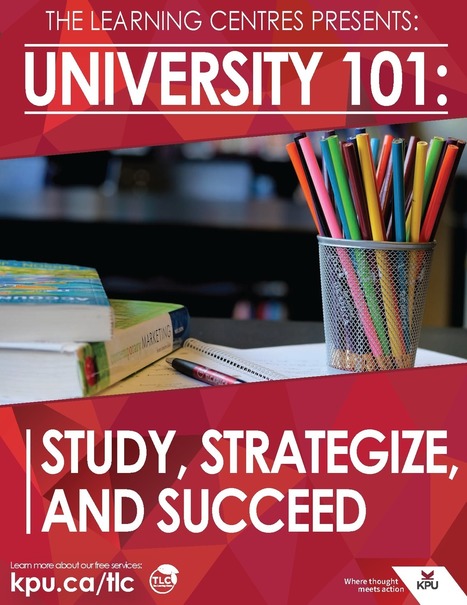

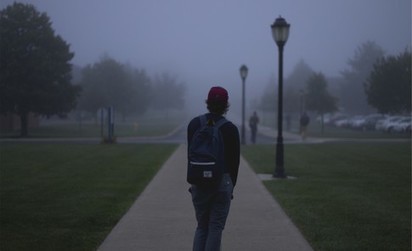




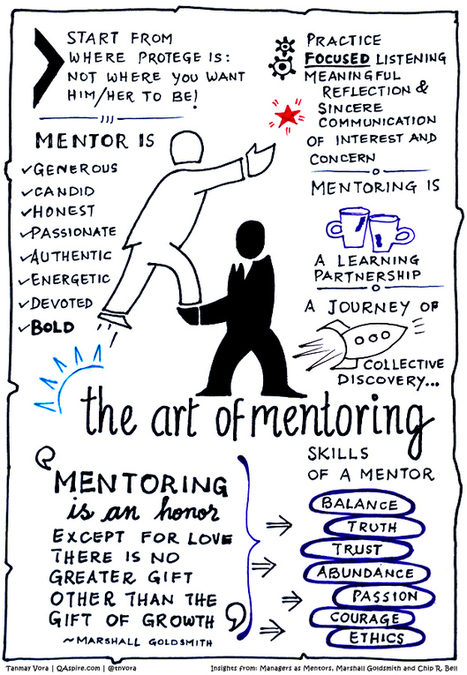






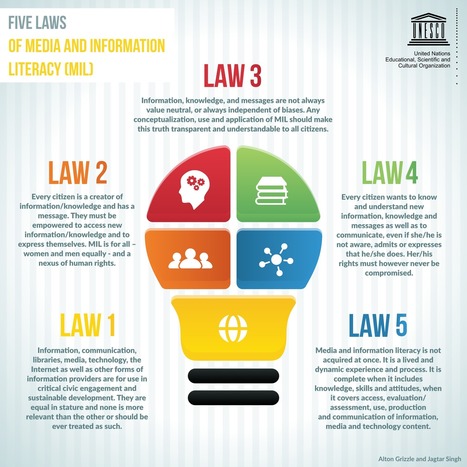

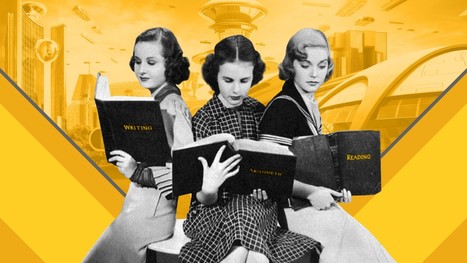

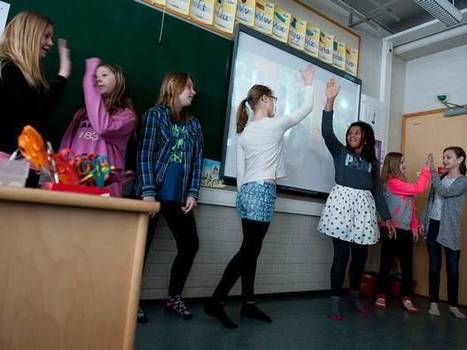



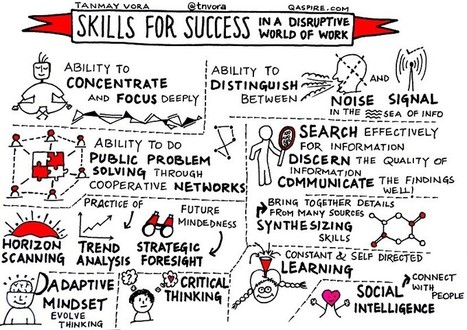



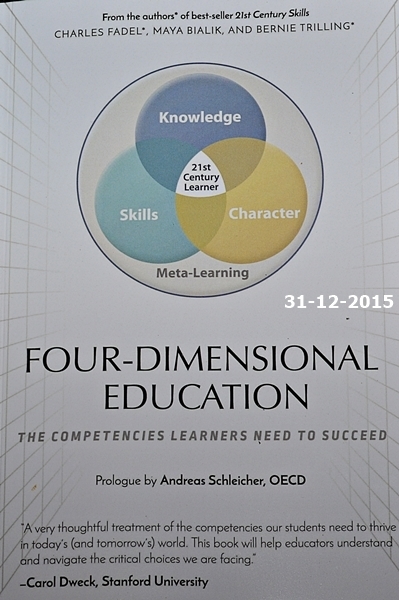



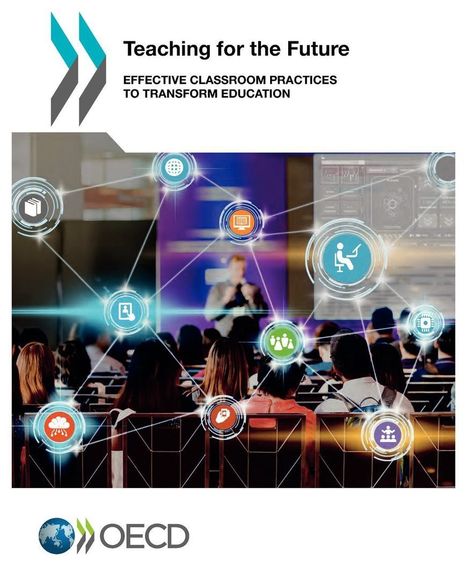


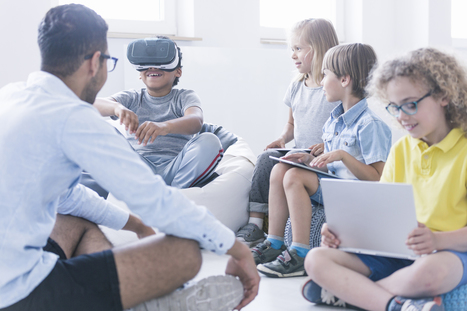




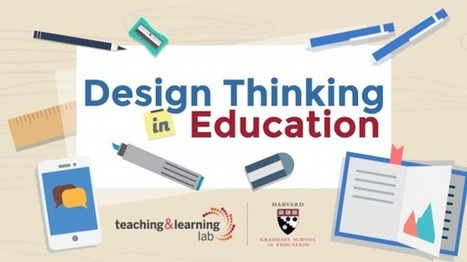

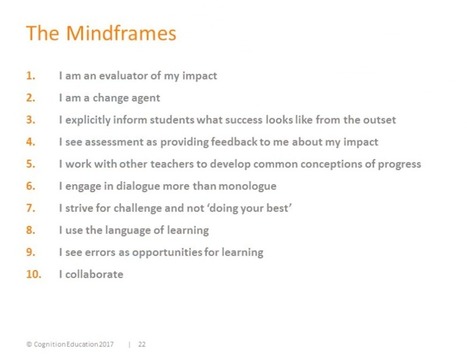
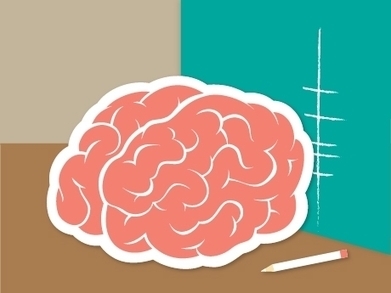



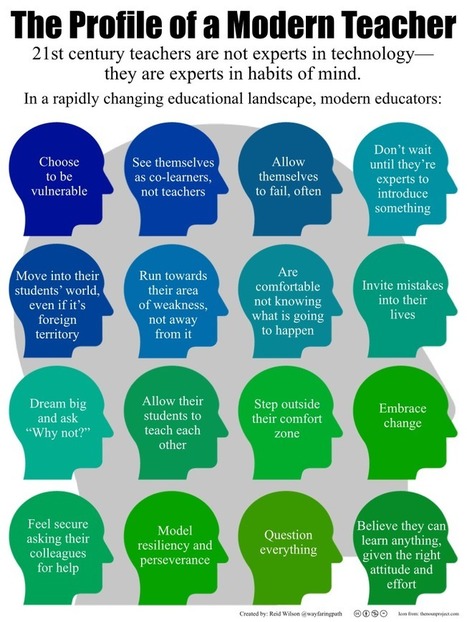

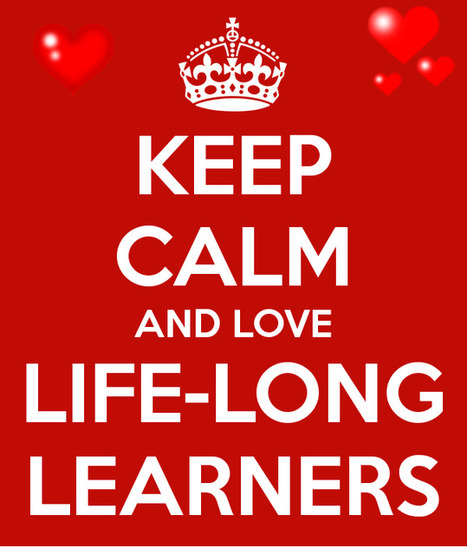
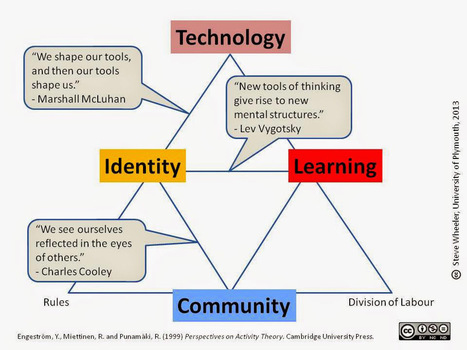


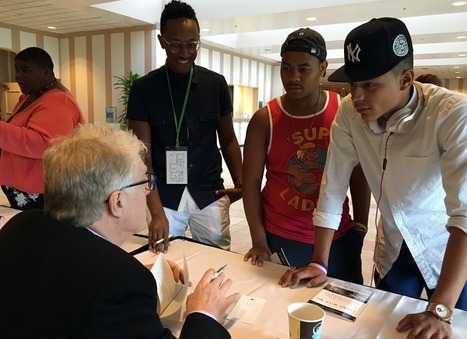





This open textbook has been added to our key study resources for our students.